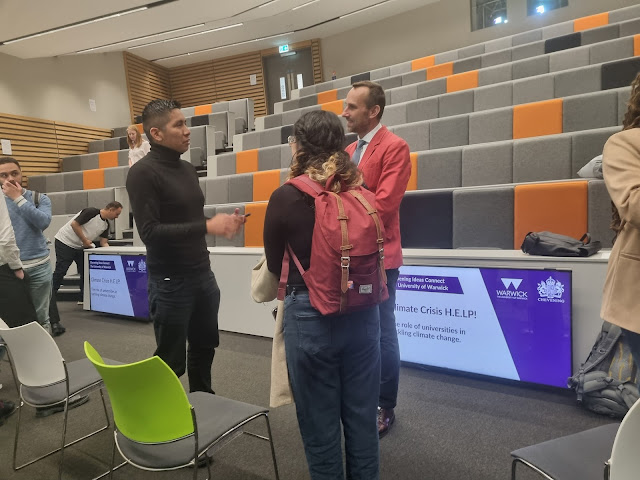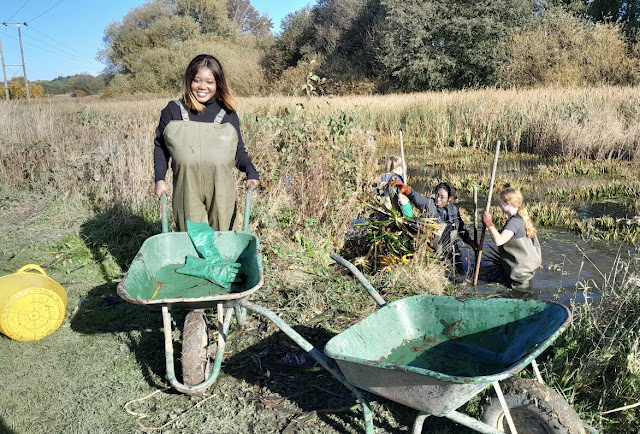Chevening Scholar Sofonie Dala Contributes to Global Climate Dialogue at the University of Warwick
Video on demand
The Global Climate Dialogue at the University of Warwick
Coventry, UK — On 21 May 2025, Chevening Scholar Sofonie Dala, from Angola and currently studying at the University of York, participated in the Chevening Ideas Connect: Climate Crisis H.E.L.P! event, hosted by the University of Warwick in collaboration with the Chevening Secretariat. The event convened Chevening Scholars and climate experts from multiple disciplines to address the global climate emergency through a lens of Hope, Equity, Localisation, and Partnerships (H.E.L.P.).
The programme featured a distinguished panel of academics, including Professor Stéphanie Panichelli-Batalla, Academic Director of Sustainability at Warwick, Dr Mitya Pearson (Politics and Climate Change), Dr Rachel Hand (Green Chemistry), Dr Ana Raquel Nunes (Public Health and Climate Resilience), and Dr Hita Unnikrishnan (Environmental Governance and Urban Commons).
These experts explored the urgent role of universities in advancing sustainable development through education, research, and public engagement.
One of the moments that particularly captured Dala’s attention during the discussion was the topic concerning the underrepresentation of Global South researchers in academic investigations about their own regions—a challenge that has become increasingly recognised as a global issue. She reflected on the persistent difficulties faced by students and scholars from Africa and other parts of the Global South when conducting research, particularly at the dissertation level. It is often difficult to locate sufficient, contextually grounded, and locally authored sources. In many cases, the limited available literature is authored by researchers from the Global North, which may not always fully reflect local realities or cultural nuances.
Dala further noted that this problem is exacerbated by a lack of systematic knowledge-sharing and data transparency among public institutions in the Global South, which restricts access to primary information for local scholars. She emphasised the need for collaborative initiatives led by institutions in the Global North to support capacity-building for local researchers. Such programmes could empower scholars from the Global South to document, publish, and disseminate research on their own communities, thereby contributing to more accurate, inclusive, and representative academic knowledge. This would also ensure that future generations have access to comprehensive, locally produced scholarship, which is vital for informed policymaking, education, and sustainable development.
The event concluded with closing remarks by Andrew Chadwick, Director of the Chevening Awards, who acknowledged the diverse contributions of scholars and reaffirmed Chevening’s commitment to fostering global leadership in sustainable development.
The Ideas Connect: Climate Crisis H.E.L.P! event represents Chevening’s strategic efforts to empower scholars to bridge local realities with global frameworks, enabling them to become agents of change in both policy and practice.
Gallery
 |


















































Comments
Post a Comment
Please leave your thoughts